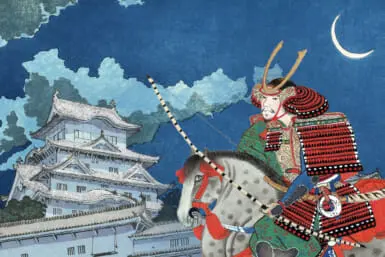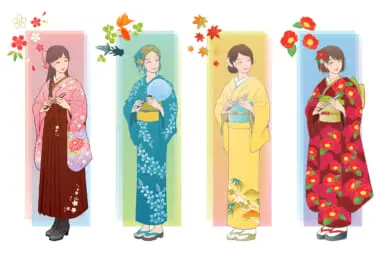According to the Oxford Dictionary, there were an estimated 170,000 words in use in the English language 30 years ago. It’s said that the average anglophone knows 1/17th of them. Wondering how many words there are in Japanese? It’s hard to say. Being an agglutinative language that borrows words from English, German and French, among others, and with slang that’s created and forgotten in the blink of an eye, there’s no sure way to quantify. In this series, we dive deeper into the etymology and meaning of Japanese words that have no equivalent in the English language.
***
When I studied Western literature after graduating high school, I dreamed of owning a library with fully stocked bookshelves. Little did I know that when it came time to move across the Pacific Ocean, a ridiculous collection would be beyond inconvenient. In three years, I had accumulated enough novels to fill three steamship trunks because my curriculum required it (I’m looking at you, Malcolm Lowry’s Under the Volcano), and because of a newfound passion for East-Asian literature.
Fellow bibliophiles will know the dark secret behind owning a vast collection of novels: we don’t actually read them all. I can confidently say that I didn’t read or don’t remember, for that matter, half of the books I purchased between the ages of 16 and 19. I’m also fully aware that I’m confessing to not fulfilling my academic duties.

A Quick Japanese Lesson
I love books and I love being surrounded by them. I’m a sucker for beautiful covers and they are, to this day, my preferred coffee table decor. Do I keep more books than I can afford to read? Yes, yes I do. There’s actually a Japanese word for that: 積読, read tsundoku.
Tsundoku is a portmanteau that’s been around for 150 years and was the subject of a few articles here and there. It’s one of my favorite untranslatable words, not only because it speaks to my 18-year-old self, but because it’s the perfect example of the flexibility of the language and Japanese humor.
The first appearance of the word dates back to the Meiji Era, a time of prosperity that saw the first generations of educated parents. During the Restoration, the Japanese government switched to Western methods of teaching with the intention of making Japan a stronger nation, and that meant granting access to education for all. It’s likely that the production and consumption of books, magazines and other printed works increased and thus tsundoku was a habit that many picked up.
Breaking down the word, it’s easy to understand that it refers to the act of accumulating reading material: 積 (tsun) meaning “accumulation” and 読 (doku) meaning “reading.” Nothing in the kanji themselves, however, indicates that we’re talking about unread materials.

Read All About It
Japanese is an agglutinative language, meaning words like adjectives and verbs get their meaning by combining morphemes. One of them is おく (oku). When attached to a verb, it implies the completion of an action in preparation for something else. Adding it to 積む (tsumu), the transitive verb for “accumulate”, gives us 積んでおく (tsudeoku), which roughly translates to “accumulating in preparation”.
This is where Japanese humor comes into play. If you’ve lived in Japan, speak an OK-level of Japanese and spend a fair amount of your time on the internet, you know where this is headed: Puns!
They love them; it’s all over Twitter and late-night comedy shows. I’ll spare you the explanation of the different kinds of puns in Japanese, but tsundoku is a fabulous example of a classic homophonic one. Remember 読 (doku)? It suspiciously sounds like deoku, if you were to say it really fast. Combine tsundeoku and doku and bam, tsudoku: the accumulation of books, magazines, newspapers or manga we purchased in preparation to read them. (But things got in the way—work, sleep, Netflix—and you never got around to reading them.)
In researching for this article, I found a few good contenders to translate tsundoku, reading pile and book hoarding, to name a few, but none of them translated the layers and the nature of the word in Japanese, and it certainly doesn’t translate the word-play.
Join Our Book Club!
I’m not sure where I stand on whether it’s a good or bad habit, and while I do KonMari my books every once in a while, it’s before long that I start piling up unread books again. This is why instead of suggesting a cure to tsundoku, I invite you to join the TW Book Club. We commit one novel every month and talk about it on Goodreads and our Facebook page.
And we all know that if we read one book, we can justify buying three more.










